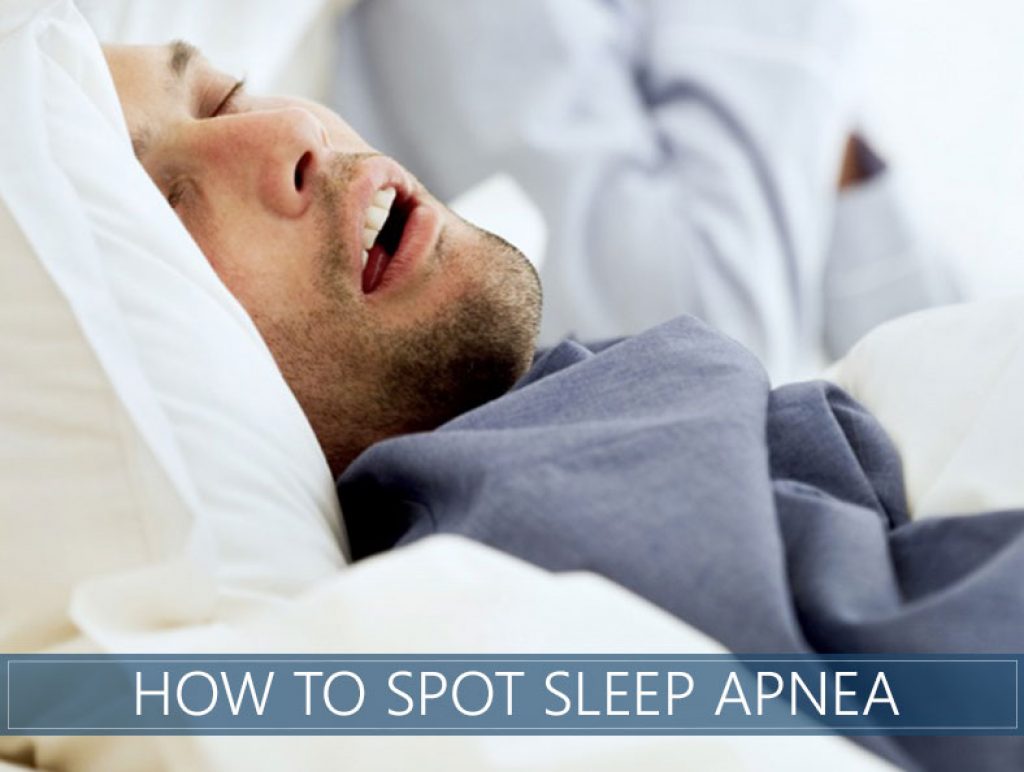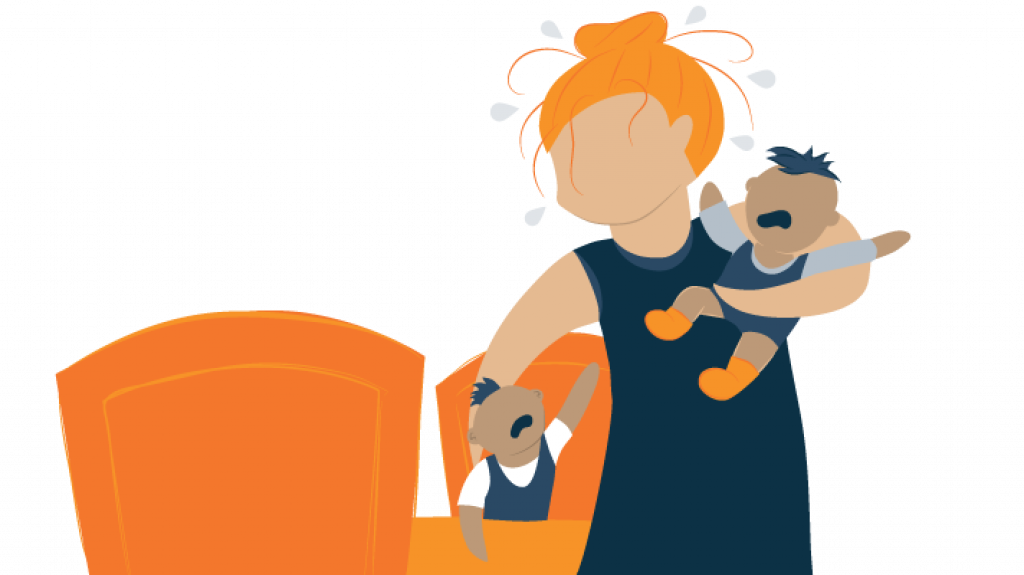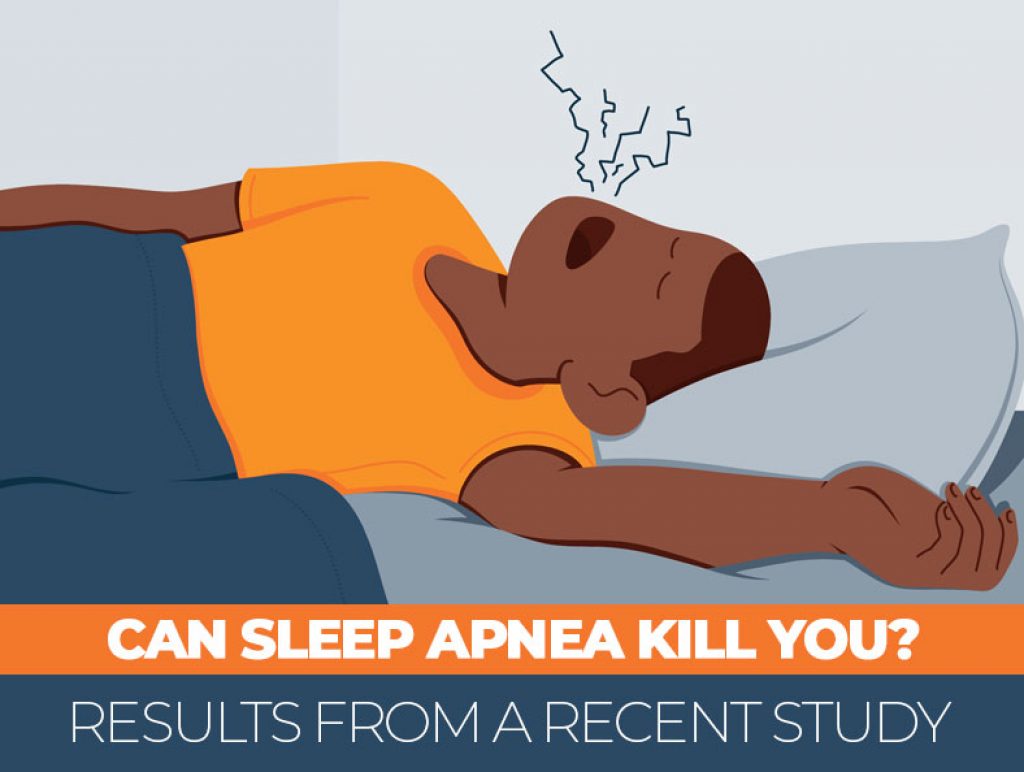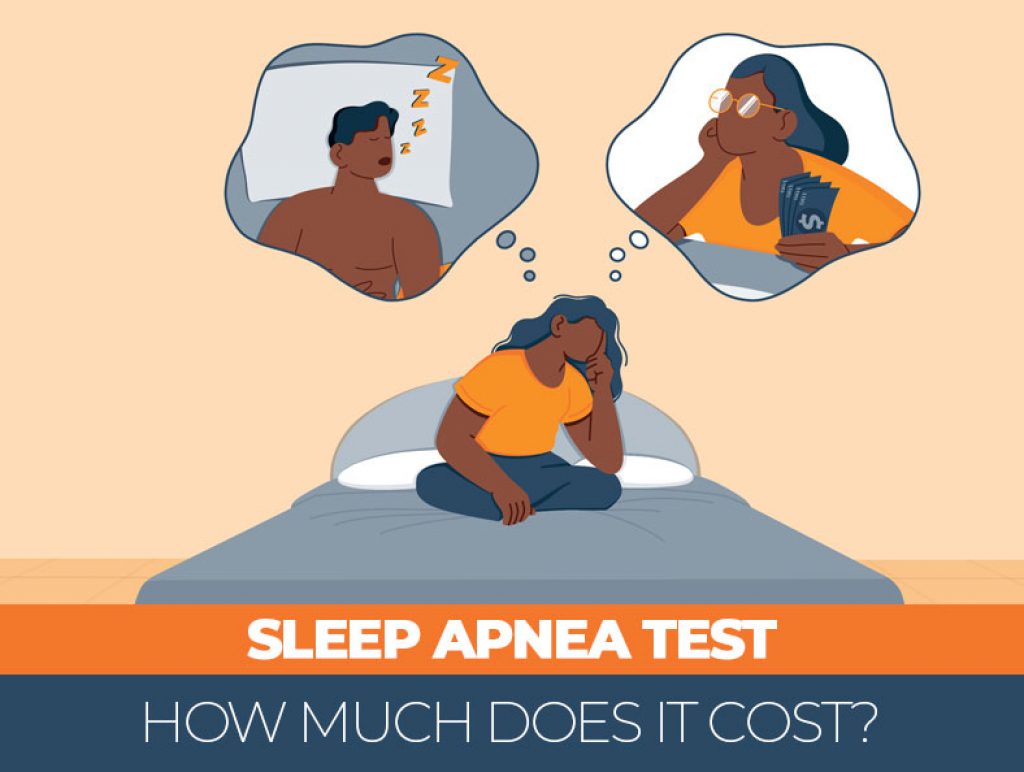Living with a diagnosed sleep disorder can make it exponentially more challenging to achieve great rest. Whether they’re preventing you from falling asleep or consistently waking you up during the night, sleep disorders may significantly impact your quality of life.
One of the most prevalent disorders is sleep apnea. This article will guide you through all there is to know about sleep apnea, including ways you could improve this condition on your own.
We’ll highlight new evidence and go over research that suggests one form of sleep apnea treatment may lower your risk of developing dementia.
What Is Sleep Apnea?
Sleep apnea1 is when your breathing continually starts and stops while you’re asleep. Cases can range from mild to severe. This disorder comes in three forms: obstructive, central, and complex.
Related: Best Mattress for Sleep Apnea
Obstructive Sleep Apnea (OSA)
Among the three types of sleep apnea, most people experience obstructive.
Obstructive sleep apnea occurs when the muscles in the back of your throat relax, which narrows your airway as you try to breathe in. This can lead to a drop in oxygen levels in your blood.1
Your brain then catches on that you’re not breathing well, causing you to wake up to open your airway. Most people let out some sort of choke, snort, or gasp when this happens. This pattern can continue throughout the night.1
Central Sleep Apnea (CSA)
Central sleep apnea is when your brain doesn’t send signals to the muscles that allow you to breathe, causing you to not breathe for short periods and potentially leading to shortness of breath or difficulty staying asleep.1
Complex Sleep Apnea
This form of sleep apnea is when someone experiences both OSA and CSA. Another term for this particular disorder is treatment-emergent central sleep apnea.1

Sleep Apnea Symptoms
We’ve covered that some effects of sleep apnea are gasping for air, snorting, choking, shortness of breath, and trouble staying asleep. Additional symptoms include loud snoring, dry mouth, headaches, daytime drowsiness, difficulty focusing when awake, and irritability.1
Learn More: Sleep Apnea Facts
Who’s at Risk for Sleep Apnea?
Obstructive Sleep Apnea
- Weight gain – A heavier weight can be a risk factor for OSA.1
- Thicker neck – People with a broader neck circumference may have a more narrow airway, possibly generating OSA.1
- Narrow airway – Some people may naturally have a narrower airway even without a thick neck, making them more vulnerable to sleep apnea. In children, tonsils or adenoids may also cause an airway block.1
- Gender – Unfortunately for men, they are 2-3 times more likely to develop sleep apnea than women. However, women are still at risk and their chances of OSA increase with menopause or weight gain.1
- Age – Sleep apnea is more prevalent in older adults.1
- Family history – This disorder may run in your family, and if that’s the case, it can increase your odds of experiencing sleep apnea.1
- Alcohol use – Alcohol can relax your throat muscles, which can cause OSA to worsen. Taking sedatives or tranquilizers also has this effect.1
- Smoking – People who smoke are three times more likely to develop OSA compared to non-smokers. This is because smoking causes fluid retention in the airway, which can make breathing more difficult.1
- Congestion – Chronic nasal congestion may also bring about sleep apnea.1
- Medical conditions – Certain medical conditions may also create a higher risk. These include congestive heart failure, high blood pressure, type 2 diabetes, Parkinson’s disease, Polycystic ovary syndrome, hormonal disorders, stroke, and chronic lung diseases.1
Central Sleep Apnea
- Age – People who are middle-aged or older have a higher chance of developing this form of sleep apnea.1
- Gender – Central sleep apnea is more frequent in men.1
- Heart problems – People with congestive heart failure are at an increased risk.1
- Pain medications – The use of opioid medications may cause CSA.1
- Stroke – Previously experiencing a stroke also increases your likelihood of this disorder.1
Sleep Apnea Diagnosis and Treatment
How is Sleep Apnea Diagnosed?
If you suspect you may have sleep apnea, you should talk to your doctor. They’ll first ask you about your symptoms, which might include loud snoring, gasping for air during sleep, waking up with a dry mouth or headache, insomnia, excessive daytime sleepiness, or difficulty paying attention during the day.1 If you share a bed with somebody, you may ask them if they’ve noticed any symptoms while you’re sleeping as well.
Your doctor will also look at whether or not you have certain sleep apnea risk factors, such as excess weight, a thicker neck, age, family history, your use of alcohol or sedatives, congestion, smoking, or other medical conditions, like congestive heart failure, high blood pressure, or type 2 diabetes.1
Oftentimes at this point, your doctor may recommend that you see a sleep specialist, and they may have you do a sleep study. Sleep studies are often done at sleep centers, though at-home options are sometimes available as well.
Read our in-depth sleep apnea statistics to learn more.
Sleep Center Study
During this test, you’ll be hooked up to equipment that measures your heart, lung, and brain activity, as well as your breathing patterns, blood oxygen levels, and arm and leg movement during your sleep.
Pros:
- These tests are far more accurate
- You will likely only have to do this test once
Cons:
- You’ll have to spend the night in the sleep center
- It is more involved and may be more expensive
Learn More: How to Prepare for a Sleep Study
At-Home Sleep Study
A home test is a very simplified version of the ones done at sleep centers, also measuring your heart rate, blood oxygen levels, and breathing patterns. However, at-home studies may be less precise than if done in a lab. If the sleep specialist believes you have central sleep apnea rather than obstructive, you’ll likely need to stay the night in a sleep testing facility.
Pros:
- Can be done in the comfort of your own home
- May be less expensive
Cons:
- These tests are less accurate and can miss things
- You may have to go to the sleep clinic anyway, even after your home test
If your provider determines that you have obstructive sleep apnea, they may refer you to an ear, nose, and throat specialist, and if it appears you have central sleep apnea, you may need to see a cardiologist or neurologist.
Obstructive Sleep Apnea Treatment Options
For milder cases of obstructive sleep apnea, your doctor may recommend certain lifestyle changes like more exercise and a healthier diet since excess weight is a cause of OSA.1 They may also recommend quitting smoking or lying on your side rather than your back when sleeping.1
For more serious cases, though, there are several different treatment options:
- Continuous Positive Airway Pressure (CPAP) Machine: A CPAP machine delivers air pressure by way of a mask, throughout the night. This air pressure keeps your airway from collapsing while sleeping. This is the number one treatment option recommended by specialists, and it can be quite effective, though some sleepers might find it uncomfortable or cumbersome.1
- Other airway pressure devices: Auto-CPAP and BiPAP devices are also options. These provide more pressure when you inhale and less when you exhale, which may improve ease of use for some sleepers.1
- Oral appliances: Oral appliances may be slightly less effective than CPAP therapy, but they are also a bit easier to use. They are designed to place your jaw in a position that opens up your throat. Usually, a dentist will be responsible for your care with an oral appliance for sleep apnea.1
- Surgery: Sometimes surgery is recommended for OSA when other treatments have failed. In children with OSA, surgeries to remove the tonsils or adenoids are common. More commonly in adults, surgeries can include tissue removal, tissue shrinkage, jaw repositioning, implants, nerve stimulation, and certain weight loss surgeries. If sleep apnea is severe enough to be life-threatening, doctors may perform a tracheostomy, in which a new airway is created in the neck.1
Central Sleep Apnea Treatment Options
Since CSA is caused by a miscommunication between the brain and the muscles in the body rather than a physical obstruction, the treatment will be very different — another reason it is vital to get a proper diagnosis from a sleep specialist.
Some of the treatment options for CSA include:
- Treating underlying medical issues: CSA can be caused by underlying medical issues like heart or neuromuscular disorders. As such, treating these underlying conditions may alleviate sleep apnea.1
- CPAP: Just like with OSA, some doctors will recommend a CPAP device to treat the symptoms of CSA. This won’t solve the underlying cause of sleep apnea, but it should help with the symptoms.1
- Medication changes: If you are taking certain medications like opioids or other sedatives, they may be causing or worsening your central sleep apnea. Your doctor may choose to change your medications to help treat CSA.1
- Supplemental oxygen: Supplemental oxygen, or additional oxygen, can be used during sleep for CSA. Rather than delivering pressurized air to keep the airway open like a CPAP machine, this device delivers extra oxygen to your lungs.1
- Adaptive servo-ventilation (ASV): An ASV is another type of airflow device. This one is distinct in that it learns your typical breathing patterns and stores this information in a computer. Once you’re asleep, the machine regulates your breathing pattern with pressure (like a CPAP machine). This may be a good choice for people with treatment-emergent CSA, though it can be dangerous for those with heart failure.1
Are You Sleeping with Sleep Apnea?
Why Is It Important to Treat Sleep Apnea?
According to a recent report, an estimated 30 million Americans2 have obstructive sleep apnea, with as much as 80 percent of those cases going undiagnosed. Not treating OSA, however, may lead to severe and long-term health consequences.
According to the Mayo Clinic, the following complications are associated with untreated OSA.1
Daytime Fatigue
Constantly feeling tired throughout the day can impact both your professional and personal life. For employees, drowsiness could lead to workplace mistakes, poor performance, and reduced productivity. Sleepiness could also cause you to be more moody, which could hinder your relationships with friends, family, and colleagues.
The consequences could also be fatal since daytime sleepiness puts you at a higher risk of getting into a car accident.
High Blood Pressure
The constant drop in oxygen levels in your blood resulting from sleep apnea puts a strain on your cardiovascular system, increasing your chances of developing high blood pressure.1
Heart Problems
Not treating sleep apnea could be dangerous for your heart in other ways, too. Obstructive sleep apnea could lead to a heart attack, stroke, or irregular heartbeat. This is especially dangerous for those with heart disease, as low oxygen in the blood may cause sudden death.1
Get More Info: Can Sleep Apnea Kill You?
Diabetes
Type 2 diabetes3 is a long-term condition that affects how the body uses sugar to fuel itself. Many people living with diabetes have to regularly take insulin to help regulate their blood glucose levels since their pancreas does not produce enough insulin naturally or because their body has developed a resistance to insulin. Sleep apnea could raise your risk of developing type 2 diabetes or becoming insulin-resistant.1
Metabolic Syndrome
Sleep apnea could also result in developing a disorder known as metabolic syndrome. People with this condition may experience high blood pressure, abnormal levels of cholesterol, an expanded waist, high blood sugar, and an increased risk of heart disease.1
Liver Problems
People with sleep apnea may experience issues with their liver, including abnormal test results and scarring, which is a form of nonalcoholic liver disease.1
Complications with Surgery or Medications
Sleep apnea is also a concern for people who take medications or who have recently undergone surgery. OSA could disrupt certain medications or general anesthesia. Additionally, the breathing problems associated with this disorder could be dangerous for patients post-surgery who are sedated and lying on their backs.1
For your safety, you should inform your doctor of your sleep apnea before having surgery.
Your Partner May Lose Sleep
Vocal disruptions like gasping for air or persistent snoring could cause your partner to lose sleep as well. Not only could this affect their well-being, but it may also create tension in your relationship.
Sleep Apnea in Children
Although sleep apnea is more common in adults, kids may also experience this disorder, which is estimated to affect 1-4 percent4 of children. Sleep apnea is most common among kids ages 2-8.
Untreated sleep apnea among children may lead to mood problems, inattentiveness, hyperactivity, and poor impulse control. These kids are also put at a higher risk of developing cardiovascular disease later in life.
To help, first determine whether your child snores, as this is a common sign of OSA among kids. Then, you should consult with a doctor. Due to their younger age, many kids will undergo surgery to cure sleep apnea by having their tonsils or adenoids removed.
Sleep Apnea FAQs
What is the main cause of sleep apnea?
Obstructive sleep apnea, the more common form of this sleep disorder, is caused by anything that obstructs the airway during sleep and makes getting enough oxygen difficult. Some of the most common causes behind this are obesity, excessive weight, congestion, and alcohol consumption.1
How do you fix sleep apnea?
There are different treatment options to help with the symptoms of sleep apnea, which may include lifestyle changes and using special devices like a CPAP machine.
However, the only way to truly “fix” sleep apnea is to address the underlying cause. For example, if excessive weight is the root cause of your sleep apnea, losing weight will likely be the most effective long-term treatment plan, whereas using a CPAP machine will only mitigate your symptoms while you’re using the machine.
Is sleep apnea serious?
If sleep apnea is left untreated, it can be very serious. Short-term, sleep apnea can cause daytime fatigue, high blood pressure, heart issues, and sleep deprivation for your partner. Long-term, untreated sleep apnea can lead to type 2 diabetes, metabolic syndrome, liver issues, and increased risk for stroke and heart attack.1
If you suspect you might have either OSA or CSA, we recommend seeing a doctor as soon as possible to treat both your sleep apnea symptoms and any underlying conditions.
Sleep Apnea & Sleep
More Articles

Jill Zwarensteyn
Editor
About Author
Jill Zwarensteyn is the Editor for Sleep Advisor and a Certified Sleep Science Coach. She is enthusiastic about providing helpful and engaging information on all things sleep and wellness.
Combination Sleeper
References:
- “Sleep apnea”. Mayo Clinic. Last modified April 6, 2024.
- “New national indicator report details importance of prompt sleep apnea diagnosis and treatment. American Academy of Sleep Medicine. 2024.
- “Type 2 diabetes”. Mayo Clinic. Last modified March 14, 2024.
- “Treatment for Obstructive Sleep Apnea”. SleepApnea.org. Last modified September 25, 2024.



